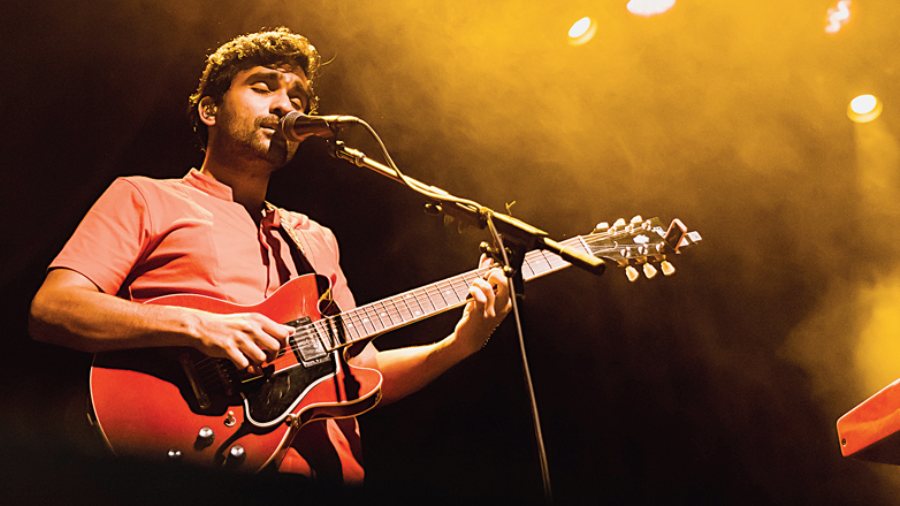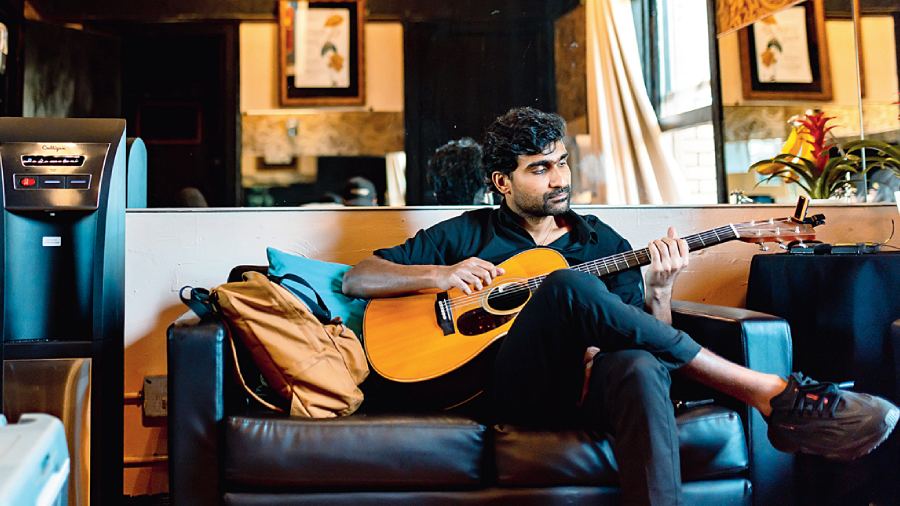There are trend-driven songs and then there are those that get you through phases in life. Prateek Kuhad delivers — on his latest album The Way That Lovers Do, which has also prompted a tour (the singer is performing in Kolkata’s Aquatica on December 4, followed by Indore on December 10, Bangalore on December 17 and Goa on December 18) — music that encourages conversations, makes people feel less lonely and help navigate emotional weather patterns. On the 11-track album, the 32-year-old makes the listener feel as if a conversation with an old friend is unfolding, taking you hither and yon with a beautiful narrative. Here’s what Kuhad had to say as his India tour continues to unfold.
In what ways does The Way That Lovers Do carry the story forward from Cold/Mess or perhaps leaves a chapter behind and focuses on new beginnings?
I don’t really plan my life or my work or my writing that much. To me, it’s not really about carrying the story forward or not; I just wanted to make, as always, good music, to keep it simple. I write songs that I like… that I think are good. I try my best to make them as good as they can be. I try to put my best into my albums and that’s pretty much it.
Stuck at home for more than two years, did you face challenges writing because your music is about making connections, about people?
Yeah, I think so. I definitely felt very uninspired during the pandemic, because a big part for me is to feel kind of stable and good… and kind of alive, in a sense, just meeting people, having conversations and getting inspired.
Who do you think your audience is at the moment?
I don’t know what my audience is. I don’t really think about it too much. I honestly just want to make good music till I die. And that’s all I really want to do. And then I just want everybody to listen to it… whoever really wants to listen to it.
Have there been moments when you decided to step away, step back and take a look at what you are doing and then find motivation to write again?
If you are talking about vulnerability, then yes. I think it depends, honestly, you can be a vulnerable songwriter, or you may not be. I think I am vulnerable. I think I try to pretty much be honest about how I’m feeling when I’m writing songs.
Would it be fair to say that you went into the studio without limitations or thinking about genres?
Yeah, I try as much as I can to not really think about genres at all. It naturally falls into a genre because I have a set of influences. And there’s a certain group of instruments and production styles and writing styles I am more comfortable with. So when I write something, it fits into certain genres, like folk and pop, and alternative, contemporary sometimes. It just really depends, but yeah, I did like… over the past few years, I’ve been working with software and keys and stuff in general. It just really opens up a whole new bank of sounds.
Let’s talk about Spatial Audio (on Apple Music). In what ways has it helped you to break the wall between musicians and listeners?
I think it’s just better. It’s kind of like immersive in a certain sense; there’s just more depth. Were it just being a stereo left and right mix… this has more dimension to it. Nobody really records stuff based on Spatial Audio; you usually just record an album normally as you would. And during the mixing phase is when there are mix engineers who specialise in Spatial Audio mixing and then they kind of mix it according to that.

What has stopped you from putting out an album where Hindi and English co-exist?
There’s nothing really stopping me. I just haven’t felt the need to do it so far. Honestly, I just feel like it feels more congruent when it’s the same language and feels more like a record but that’s a good point. Maybe I should.
Do you ever get the feeling that making a record during the initial years/the years of struggle brings out the best in a musician?
I think any sort of struggle, especially if you do overcome it, will make you a better person… kind of gives you the courage. I mean, if you have some sort of struggle, and then you get over it and you’re somewhat victorious, then you just have the confidence to deal with it the next time it happens, and it does happen.
How was the US tour and how do you prepare for a tour?
The US tour was really fun. We travelled across the country for like 30 days; some cities, we played two shows, like two nights in a row.
The main preparation is just packing, like I just take certain things, and I have certain protocol… not exactly protocol… a bit of a routine in terms of how many times am I working out a week, what am I eating mostly. I mostly just got to keep a track on eating a little healthy and working out and that’s pretty much it.
What has been the most favourite part of making the new album?
I think just generally being in the studio is a really good time for me. I was in the studio for almost two months in Seattle… at a studio called Bear Creek. It was just a solid routine, like religiously getting up every morning, spending eight to 10 hours in the studio, then going to sleep and then doing it all over again every single day. I liked it. I like being able to make music every day.
What makes you love being on the road, going from one gig to another?
Honestly, it’s quite exhausting. I wouldn’t say like being on the road is the best life but it makes it worth it because the shows are really fun. I get to see a lot of happy faces and taking my music everywhere is like a goal I have… it’s a thing I want to do. I want to take my music to as many places and to as many people in the world as I can.
I gather that you bake and are quite good at it.
I’m not that good at it. During the pandemic I had a lot of free time. So that’s one of the things I did. Still, every now and then, I like to bake some bread or something... I just like bread and fresh homemade bread is great. But I don’t make that much anymore.
